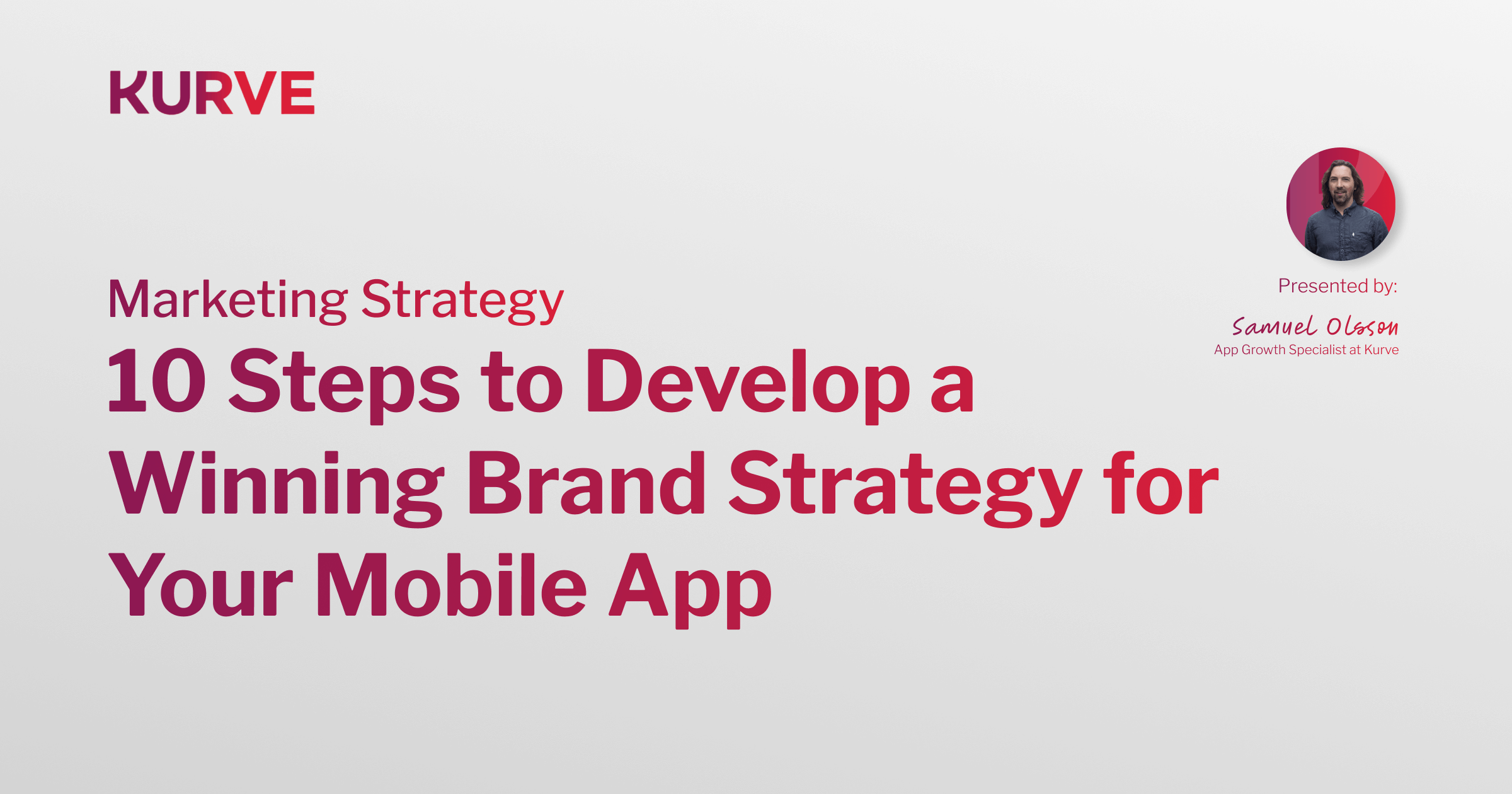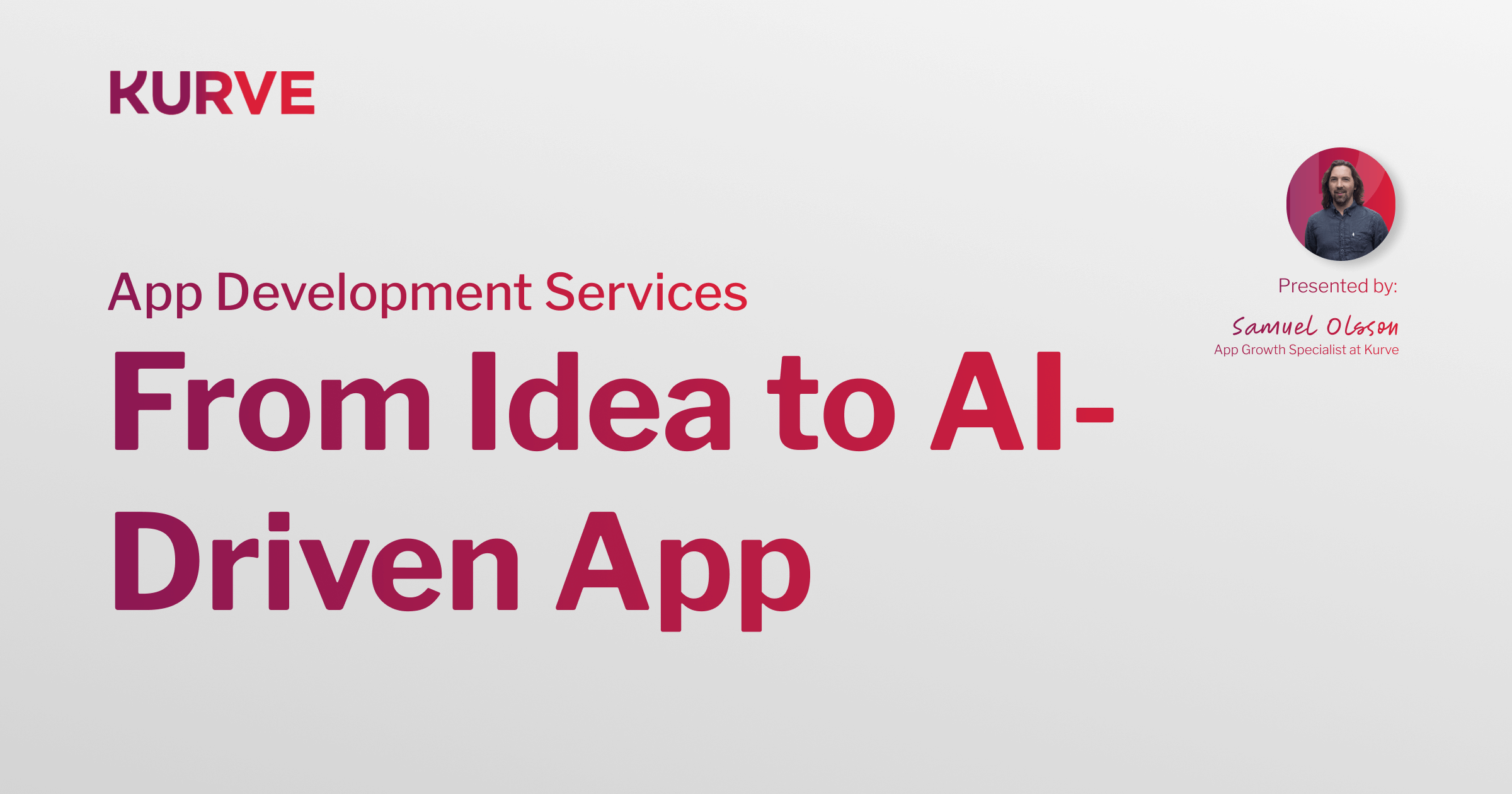10 App Marketing Trends for 2024
In 2022, the mobile app industry witnessed tremendous growth, with consumer spending on apps surpassing $580 billion.
That momentum shows no signs of slowing down in 2024.
Nevertheless, mobile app marketers face significant challenges in this ever-evolving landscape.
Keeping up with the latest trends and adapting strategies accordingly is a continuous effort that requires dedication and expertise. For this reason, successful companies often delegate this crucial task to marketing agencies specializing in mobile app growth.
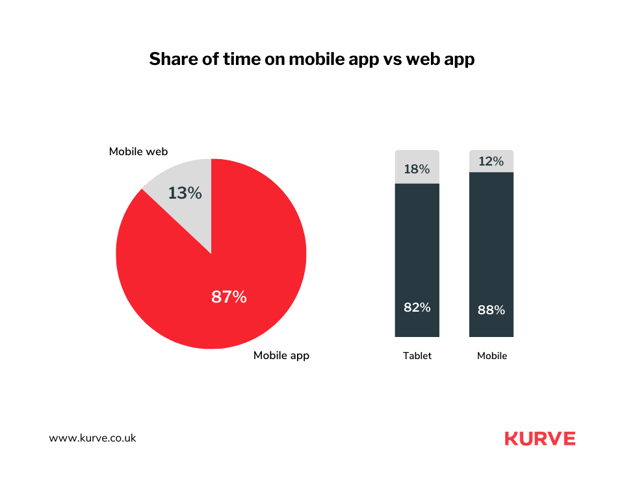
Your app can thrive in this dynamic environment by staying informed and making necessary adjustments. So prepare to embrace change and stay ahead of the competition with these critical trends and predictions. In this guide, we will empower you with insights into the most prominent app marketing trends of 2024.
Influencer Marketing Remains an Effective Investment
Influencer marketing continues to be a highly effective investment for mobile app promotion. App developers can tap into their loyal followers by collaborating with influencers and creating authentic connections with potential users. The power of influencer marketing lies in the trust and credibility these individuals have built with their audience, which translates into higher engagement and conversions.
A prime example of influencer marketing success is Sweatcoin's partnership with Kurve.
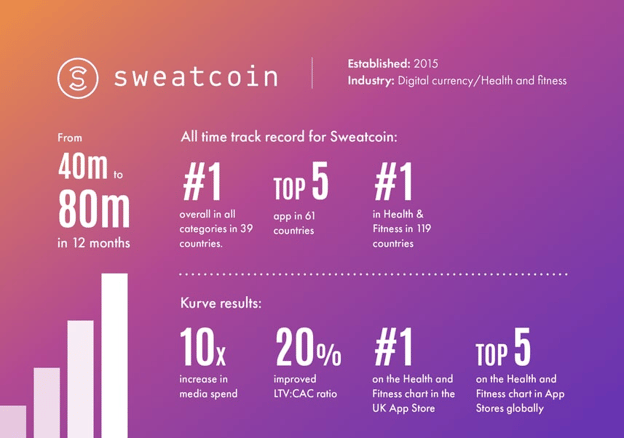
By leveraging TikTok and micro-influencer marketing, Sweatcoin experienced a significant boost in its outreach strategy. Micro-influencers, with their highly engaged and niche audiences, were pivotal in driving app downloads and brand awareness for Sweatcoin. This case study demonstrates the potential of a well-executed influencer marketing campaign in mobile app promotion.
As we progress through 2024, investing in influencer marketing remains a top choice for app developers looking to expand their user base and increase app visibility. The key is identifying the right influencers who align with your brand values and can effectively communicate your app's unique selling points to their audience.
App Store Optimization: Still Strong as a Foundation

App Store Optimization (ASO) is a crucial foundation for app marketing success. As competition in app stores grows exponentially, the importance of optimizing your app for visibility and discoverability cannot be overstated. Research indicates that many app downloads result from organic searches within app stores, making ASO more relevant than ever.
ASO involves refining an app's title, keywords, description, icon, and screenshots to improve its ranking in search results. An optimized app store listing not only increases visibility but also helps in targeting the right audience. Focusing on the most relevant keywords and providing a clear, concise, and engaging description will attract users more likely to download and engage with your app.
Furthermore, ASO has a significant impact on conversion rates. A visually appealing icon and informative screenshots can pique users' interest, ultimately leading to more downloads. In a rapidly growing app market, ASO remains a powerful tool for marketers seeking to boost their app's visibility, user acquisition, and overall success.
AI-Driven Marketing is on the Rise
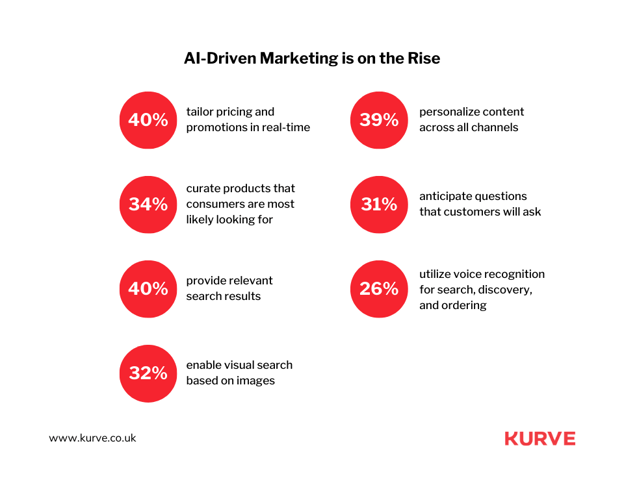
The mobile app marketing landscape has been witnessing a surge in the adoption of automation and AI-driven tools. These cutting-edge technologies are reshaping how marketers strategize, execute, and optimize their campaigns, offering unprecedented precision and efficiency. According to research, AI-powered marketing solutions are expected to grow significantly, with the market projected to reach billions of dollars by the end of the decade.
AI-driven marketing tools are revolutionizing various aspects of mobile app marketing, from audience segmentation and targeting to personalized messaging and creative optimization. Machine learning algorithms analyze vast amounts of data to identify patterns and trends, allowing marketers to deliver highly customized user experiences. Additionally, automation enables marketers to streamline workflows, reduce human error, and save valuable time and resources.
As competition in the app market intensifies, adopting AI and automation is becoming increasingly essential for mobile app marketers to stay ahead of the curve. These technologies enhance marketing performance, empower businesses to make data-driven decisions, and drive sustainable growth.
Videos: Remains a Strong Choice for Content

Thanks to its engaging and immersive nature, video content continues to be a powerful marketing tool for mobile apps. According to research, people are more likely to retain information presented in a video format than text or images. Moreover, studies show that video content generates higher click-through and conversion rates than other content types.
In mobile app marketing, videos serve multiple purposes, such as showcasing the app's features, providing tutorials, and offering user testimonials. These visual elements help create a stronger connection with potential users, making it easier for them to understand and relate to the app's value proposition.
Furthermore, video content is highly shareable and adaptable to various platforms, including social media, app stores, and websites. This versatility helps mobile app marketers reach a wider audience and create a buzz around their products. As a result, video content remains a strong choice for mobile app marketers looking to drive user engagement, app downloads, and, ultimately, revenue growth.
User-Generated Content for User Retention
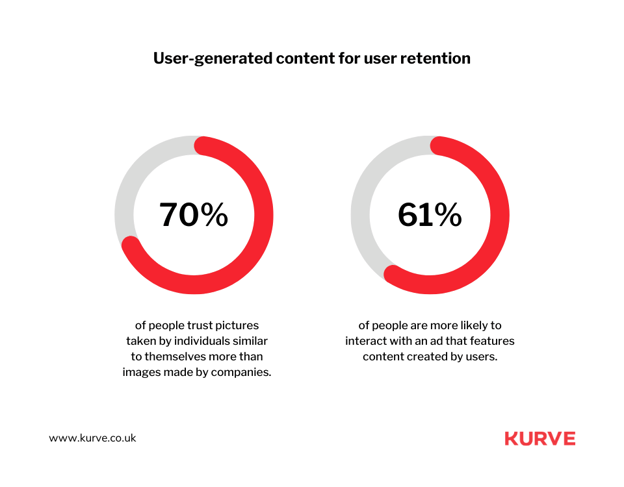
User-generated content (UGC) is essential in driving user engagement and retention for mobile apps. Research shows that UGC, such as reviews, ratings, and in-app content created by users, significantly influences user behavior and decision-making processes. 92% of consumers trust UGC more than traditional advertising, making it a powerful tool for boosting app credibility and trustworthiness.
Incorporating UGC in mobile app marketing strategies helps create a sense of community and fosters user engagement. Users who feel involved in the app's development and growth are more likely to remain active and loyal. Additionally, UGC enables users to connect, share experiences, and contribute to the app's overall success.
By leveraging user-generated content, app marketers can gain valuable insights into user preferences and identify areas for improvement. This feedback can enhance the app's features, functionalities, and user experience, leading to higher user retention rates and app downloads. As a result, UGC plays a vital role in driving app engagement and long-term success.
Social Features in Mobile Games
Integrating social features in mobile games has become a trend in recent years as developers recognize the potential for increased user engagement and retention. Research indicates that incorporating social elements, such as in-game chat, multiplayer options, and social media integration, can create a more immersive and enjoyable gaming experience for users.
By adding social features, game developers can foster a sense of community and encourage users to interact, collaborate, and compete with one another. This social aspect not only enhances the gaming experience but also contributes to increased user satisfaction and loyalty. Moreover, social interactions within games can drive organic growth through word-of-mouth marketing, as players invite their friends and share their achievements on social media platforms.
Furthermore, social features offer valuable insights into user behavior, preferences, and trends. Developers can use this data to optimize their games, tailor content, and deliver personalized experiences to players. In summary, integrating social features in mobile games is a powerful strategy for boosting user engagement, retention, and app success.
App Engagement via Interactive Marketing
Interactive marketing has emerged as a powerful approach to boosting app engagement by offering users a more personalized and immersive experience. Research suggests that interactive marketing techniques, such as quizzes, polls, augmented reality (AR), virtual reality (VR), and gamification, can significantly enhance user engagement and satisfaction.
By incorporating interactive marketing elements into mobile apps, developers can foster deeper connections with users and encourage active participation. These features capture users' attention and stimulate curiosity, driving them to explore the app and its content further. This increased interaction leads to higher levels of engagement and retention.
Additionally, interactive marketing enables app developers to collect valuable user preferences, behavior, and feedback data. This information can be leveraged to fine-tune app features, improve personalization, and deliver relevant content that resonates with the target audience. Overall, integrating interactive marketing strategies into mobile apps effectively elevates user engagement and builds long-lasting relationships with users.
Blockchain Tech for Data Security
The rise of blockchain technology has significantly contributed to enhancing mobile data security, offering a reliable and transparent solution to protect sensitive user information. As data breaches and privacy concerns continue to grow, the adoption of blockchain technology in mobile app development is on the rise.
Blockchain's decentralized nature ensures that data is distributed across multiple nodes, making it nearly impossible for hackers to compromise the information. This level of security is precious for mobile apps that handle sensitive data, such as financial transactions and personal information.
Moreover, blockchain technology offers transparent data management, enabling users to track and verify their data anytime. This transparency builds trust between app developers and users, fostering a more secure and confident user experience.
Additionally, blockchain-based smart contracts can automate processes and validate transactions without intermediaries, reducing the risk of data breaches. Integrating blockchain technology in mobile apps is crucial to addressing data security challenges and providing a safe and reliable user experience.
Doubling Down on the Customer Experience and Convenience
In today's competitive mobile app market, prioritizing sleek and efficient customer experience is essential for success. The pandemic has highlighted the significance of convenience for consumers, who increasingly rely on apps like Amazon and Deliveroo to access products and services easily.
To stand out, app developers must treat logistics as a core aspect of marketing, focusing on enhancing customer experience through faster delivery times, competitive pricing, and responsive customer service. Ensuring users can quickly and effortlessly achieve their goals with your app is vital for user retention.
Balancing personalization and privacy is also crucial in the wake of iOS 14 tracking changes. If you can offer an improved experience through closer tracking, such as more accurate delivery time estimates or tailored product recommendations, you'll likely see more users opting in for monitoring. However, it's essential to maintain a positive user experience for those who choose not to opt-in.
App marketers must constantly innovate and optimize their customer experience, balancing personalization and privacy without compromising key factors that drive user satisfaction and retention.
Apple Advertising: Becoming a Key Ad Platform
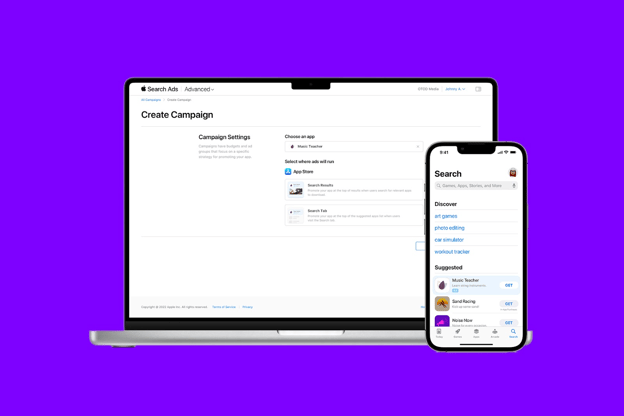
As privacy concerns grow, Apple's advertising platform emerges as a significant player in the app marketing landscape. With the company's increased focus on user privacy, advertising on third-party platforms like Facebook and Google has become more challenging for iOS app marketers.
To counteract these obstacles, more app-based companies are turning to Apple's native advertising tools. By leveraging Apple Search Ads and Apple search optimization, marketers can drive qualified iOS traffic to their app pages in a privacy-friendly manner. This approach can also provide valuable insights for making informed decisions on other platforms with limited iOS data due to privacy restrictions.
Apple will likely continue expanding its advertising offerings for app publishers, potentially extending advertising opportunities across other Apple inventories, such as Apple News, TV, and Music. This possibility makes it crucial for marketers to familiarize themselves with Apple Search Ads and the platform's advertising tools.
In conclusion, staying ahead of the curve in the app marketing space now involves embracing Apple's advertising platform, gathering data, and learning how to leverage its tools effectively for optimal results.
5G Connectivity: Unlocking New Possibilities for Mobile Apps
The advent of 5G technology is transforming mobile app development and marketing. Its exceptional speed and low latency empower developers to create innovative features, integrations, and use cases while enhancing performance.
5G's influence extends beyond consumer-facing apps to B2B applications, facilitating seamless access to real-time data crucial for AI, machine learning, and IoT. By removing connectivity limitations, developers can explore new opportunities and bring inventive solutions to various sectors like agriculture, healthcare, and manufacturing.
From a marketing standpoint, 5G enables the incorporation of augmented, virtual, and mixed reality into ads and user experiences. It also supports high-quality video streaming, sophisticated real-time mobile gaming, and an enriched overall user experience.
Additionally, 5G significantly reduces the time required to download and install mobile apps, potentially decreasing user abandonment. To fully benefit from this advantage, ensuring a smooth onboarding process for users is essential. In summary, 5G connectivity unlocks exciting opportunities for mobile app development and marketing, paving the way for unprecedented innovation.
Final Thoughts
As we embrace 2024, staying ahead of the curve and adapting to the ever-evolving app marketing trends is crucial. Keeping up with these trends will ensure your mobile app remains competitive and successful in an increasingly demanding market. Partnering with a marketing agency like KURVE can help you navigate these challenges and capitalize on the latest innovations.
If you're ready to take your mobile app marketing to new heights, don't hesitate to contact our team at Kurve and explore our comprehensive Mobile App Marketing Services. We can create an effective strategy tailored to your needs and propel your app toward success.

